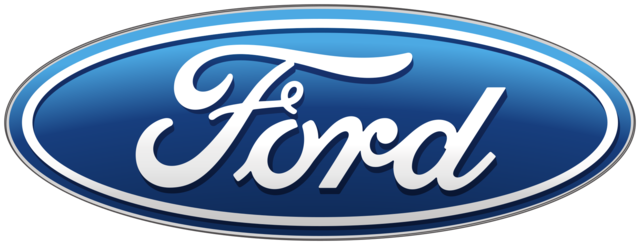Driving Success: Leadership Lessons and Stories from Ford Motor Company

Unveiling the Timeless Wisdom: Lessons from Ford’s Leadership Legacy
The iconic legacy of Ford Motor Company and its leaders
Ford Motor Company stands as an enduring symbol of American ingenuity, innovation, and resilience. From its humble beginnings in a small Detroit workshop to becoming one of the world’s largest and most influential automakers, Ford has left an indelible mark on the automotive industry. Throughout its storied history, Ford has weathered economic downturns, navigated complex global landscapes, and witnessed remarkable leadership transformations.
This article delves into the leadership lessons and stories that have shaped Ford Motor Company’s remarkable journey. It explores the principles and experiences that propelled Ford’s success, offering valuable insights for leaders in any industry seeking to drive their organizations forward.
As we embark on this exploration of Ford’s leadership legacy, we will uncover valuable lessons gleaned from key milestones and challenges faced by the company. We will witness the visionary leadership of Henry Ford, the founder who revolutionized mass production and made automobiles accessible to the masses. We will examine the importance of cultivating a strong organizational culture and adapting to changing times as we delve into Ford’s journey through the Great Depression and World War II.
Additionally, we will delve into the remarkable turnaround orchestrated by Alan Mulally, the former CEO who guided Ford through near-collapse, leveraging transparency, collaboration, and strategic focus to revive the company’s fortunes. We will also explore the role of innovation in Ford’s success, drawing inspiration from the iconic Ford Mustang and the lessons it imparts on fostering a culture of innovation and risk-taking.
Furthermore, we will witness Ford’s global expansion, examining the challenges and lessons learned from entering new markets and embracing cultural diversity. We will uncover Ford’s commitment to sustainability and social responsibility, examining their initiatives in electric vehicles and environmental causes through the lens of leadership practices.
Exploring the principles and experiences that have shaped Ford’s leadership success
By examining the leadership lessons and stories of Ford Motor Company, we aim to distill the principles and experiences that have propelled Ford’s success over the decades. These stories showcase the significance of visionary leadership, building a strong organizational culture, navigating uncertainty, fostering innovation, embracing diversity, and integrating sustainability and social responsibility into leadership practices.
As we delve into the rich tapestry of Ford’s leadership legacy, it becomes clear that the lessons learned are not confined to the automotive industry alone. Instead, they offer valuable insights and inspiration for leaders across various sectors, providing a roadmap for driving success in today’s rapidly evolving business landscape.
Join us on this captivating journey through the annals of Ford Motor Company, where leadership brilliance has left an indelible mark and continues to shape the future of the automotive industry and beyond.
The Foundation: The Ford Legacy
The visionary leader: Henry Ford and his impact on the automotive industry
Ford Motor Company’s foundation is deeply rooted in the visionary leadership of its founder, Henry Ford. With his audacious vision and relentless pursuit of innovation, Ford revolutionized the automotive industry and forever changed the way we think about transportation.
Henry Ford’s most notable contribution was the development of the assembly line, a groundbreaking manufacturing process that enabled mass production of automobiles. This innovation allowed Ford to produce vehicles more efficiently and at a lower cost, making them affordable for the average consumer. By introducing the Model T in 1908, Ford ushered in a new era of mobility and transformed the automobile from a luxury item into an accessible means of transportation.
Beyond his engineering prowess, Henry Ford’s leadership philosophy had a profound impact on the company’s culture. He believed in empowering his employees, recognizing their contributions, and fostering a sense of ownership and pride in their work. Ford implemented the groundbreaking $5 per day minimum wage in 1914, nearly doubling the industry standard, to attract and retain skilled workers. This move not only improved the livelihoods of Ford employees but also set a new precedent for fair wages and labor practices.
Building the company culture: Ford’s commitment to innovation and excellence
Central to Ford’s success has been its unwavering commitment to building a strong organizational culture rooted in innovation and excellence. The company’s culture has fostered a spirit of continuous improvement and the pursuit of groundbreaking ideas.
Ford has consistently encouraged its employees to think creatively, challenge the status quo, and push the boundaries of what is possible. This culture of innovation has been the driving force behind numerous advancements within the company, ranging from breakthrough technologies and engineering marvels to game-changing vehicle designs.
Moreover, Ford has cultivated a culture that values excellence and craftsmanship. From the early days of Henry Ford’s emphasis on quality to the modern-day commitment to producing reliable, safe, and sustainable vehicles, Ford has consistently prioritized delivering value to its customers. This dedication to excellence has helped forge enduring customer loyalty and establish Ford as a trusted brand worldwide.
Lessons learned: The importance of visionary leadership and a strong organizational culture
The legacy of Henry Ford and the evolution of Ford Motor Company provide invaluable lessons for leaders in any industry. One of the key takeaways is the significance of visionary leadership. Henry Ford’s audacious vision, coupled with his ability to inspire and rally his team, propelled Ford Motor Company to unprecedented heights. Leaders today must embrace their role as visionaries, inspiring their teams with a compelling vision of the future and rallying them around a common purpose.
Another crucial lesson from Ford’s legacy is the importance of a strong organizational culture. By fostering a culture of innovation, excellence, and employee empowerment, Ford created an environment where individuals could thrive and drive the company’s success. Leaders must prioritize culture-building, creating an atmosphere that encourages creativity, collaboration, and a relentless pursuit of excellence.
Furthermore, Ford’s commitment to fair wages and labor practices showcases the significance of valuing and investing in employees. Recognizing the contributions of the workforce and providing a supportive work environment can result in increased productivity, loyalty, and overall organizational success.
As leaders reflect on Ford’s legacy, they can draw inspiration from the pioneering spirit, commitment to excellence, and emphasis on employee empowerment that have been the cornerstones of Ford’s success. By embracing these lessons, leaders can foster a culture of innovation, propel their organizations forward, and leave a lasting impact on their industries, just as Henry Ford did with Ford Motor Company.
Leading through Turbulence: Lessons from the Great Depression and World War II
Overcoming adversity: Ford’s resilience during the Great Depression
The Great Depression of the 1930s posed unprecedented challenges for Ford Motor Company and the entire automotive industry. As the economy plunged into a deep recession, consumer demand for automobiles plummeted, leading to significant financial hardships for Ford. However, the company’s ability to navigate through this tumultuous period is a testament to its resilience and adaptive leadership.
Ford’s response to the Great Depression was multifaceted. The company implemented cost-cutting measures, streamlined production processes, and introduced more affordable models to cater to the changing market conditions. Additionally, Ford recognized the importance of maintaining consumer trust and loyalty during challenging times. Henry Ford’s commitment to the welfare of his employees resulted in retaining a dedicated workforce, even amidst economic uncertainty.
Ford’s ability to weather the storm and emerge stronger from the Great Depression demonstrates the importance of adaptability, agility, and prudent decision-making during times of crisis. Leaders can learn from Ford’s example, understanding that the ability to adapt strategies, streamline operations, and maintain employee morale is crucial for navigating through turbulent times.
Mobilizing for war: Ford’s contribution to the Allied forces during World War II
World War II presented a different set of challenges for Ford Motor Company. The company swiftly transitioned from manufacturing automobiles to producing military equipment and vehicles to support the Allied forces. Ford’s production prowess played a significant role in supplying essential resources that contributed to the war effort.
Ford’s adaptability and capacity for rapid transformation were instrumental during this period. The company’s manufacturing facilities were retooled to produce aircraft engines, tanks, and other military vehicles. The Willow Run plant in Michigan, an engineering marvel at the time, became an essential production site for the B-24 Liberator bomber. Ford’s commitment to supporting the war effort showcased its ability to pivot its operations and align with national priorities.
Ford’s contribution during World War II exemplifies the importance of purpose-driven leadership and the ability to mobilize resources effectively during times of crisis. Leaders can draw inspiration from Ford’s wartime efforts, recognizing the significance of aligning organizational goals with larger societal needs and leveraging available resources for a greater cause.
Lessons learned: Navigating uncertainty and adapting to challenging times
The experiences of Ford Motor Company during the Great Depression and World War II provide valuable lessons for leaders facing uncertainty and adversity in their own contexts. The ability to navigate through turbulent times requires a combination of resilience, strategic thinking, and agile decision-making.
First and foremost, leaders must foster a culture of resilience within their organizations. This involves instilling a mindset that embraces change, encourages innovative thinking, and rallies employees to overcome challenges collectively. Ford’s ability to adapt its operations and business models during times of crisis showcases the importance of organizational flexibility.
Additionally, leaders should prioritize effective communication and transparency during turbulent times. Ford’s success in maintaining employee loyalty during the Great Depression can be attributed, in part, to Henry Ford’s open and honest communication with his workforce. Leaders must provide clear direction, inspire confidence, and keep their teams informed about the organization’s response to challenges.
Finally, leaders should leverage crises as opportunities for growth and transformation. Ford’s shift towards wartime production demonstrated the company’s ability to seize opportunities amidst adversity. Similarly, leaders must be willing to explore alternative strategies, embrace innovation, and reimagine their business models when faced with challenging circumstances.
As leaders navigate through uncertain times, the lessons from Ford Motor Company’s experiences during the Great Depression and World War II serve as beacons of inspiration. By cultivating resilience, embracing adaptability, fostering effective communication, and capitalizing on opportunities, leaders can steer their organizations through challenging
The Leadership Transition: Lessons from Alan Mulally
Introduction to Alan Mulally: The turnaround expert
In the early 2000s, Ford Motor Company faced a crisis that threatened its very existence. The company was grappling with mounting financial losses, declining market share, and a lack of cohesive leadership. It was during this tumultuous period that Alan Mulally, a seasoned executive with a reputation for turnarounds, assumed the role of CEO in 2006.
Mulally’s appointment marked a significant leadership transition for Ford. With his extensive experience in the aviation industry, Mulally brought a fresh perspective and a reputation for strategic thinking and organizational transformation. His arrival signaled a new era of leadership for the company, one that would be defined by transparency, collaboration, and a relentless focus on the future.
Ford’s near-collapse and Mulally’s leadership approach
Upon joining Ford, Mulally faced a daunting task. The company was on the brink of bankruptcy, saddled with a bloated cost structure, and lacking a clear direction. Mulally recognized the urgent need for change and set about implementing a comprehensive turnaround strategy.
One of Mulally’s first moves was to foster a culture of transparency. He instituted a weekly business review, known as the “Business Plan Review” (BPR), where top executives openly shared their progress, challenges, and strategies. This practice created a platform for open dialogue, collaboration, and collective problem-solving, breaking down silos and facilitating cross-functional cooperation.
Mulally also emphasized the importance of data-driven decision-making. He implemented a metrics-based system known as the “One Ford” plan, which focused on improving quality, reducing costs, and enhancing efficiency across the organization. By establishing clear performance metrics and holding leaders accountable, Mulally instilled a culture of accountability and results-oriented thinking.
The “One Ford” strategy and its impact on the company’s revival
At the core of Mulally’s leadership approach was the “One Ford” strategy. This strategy aimed to unify the company’s global operations, streamline its product portfolio, and prioritize the development of fuel-efficient vehicles that aligned with changing market trends. The “One Ford” plan emphasized the importance of collaboration, shared goals, and a customer-centric approach.
Under the “One Ford” strategy, Mulally led the company through significant restructuring measures. He divested non-core brands, closed underperforming facilities, and implemented cost-saving initiatives. By streamlining operations and focusing on core strengths, Ford was able to reduce costs and improve its financial position.
Furthermore, Mulally spearheaded a product revitalization effort. He oversaw the development and launch of several critically acclaimed vehicles, such as the Ford Fusion, Focus, and Escape, which resonated with consumers and helped Ford regain market share.
Lessons learned: Embracing transparency, collaboration, and strategic focus
The leadership tenure of Alan Mulally at Ford Motor Company offers a wealth of lessons for leaders across industries. One key takeaway is the importance of transparency and open communication. By creating a culture of transparency through practices like the BPR, leaders can foster trust, collaboration, and alignment within their organizations.
Another critical lesson is the power of collaboration. Mulally’s emphasis on cross-functional cooperation and breaking down silos enabled Ford to leverage collective intelligence and tackle complex challenges more effectively. Leaders should prioritize collaboration, encouraging teams to share insights, work together towards common goals, and harness the diverse expertise within their organizations.
Additionally, Mulally’s focus on strategic clarity and data-driven decision-making highlights the importance of aligning strategies with market realities. Leaders must have a deep understanding of their industry, prioritize customer needs, and make informed decisions based on data and insights. This approach allows organizations to adapt
Driving Innovation: Lessons from the Ford Mustang
The birth of an icon: The story behind the Ford Mustang
The Ford Mustang stands as an iconic symbol of American automotive design and innovation. Its introduction in 1964 marked a significant milestone for Ford Motor Company and the industry as a whole. The Mustang’s success can be attributed not only to its timeless design but also to the innovative thinking and strategic decision-making that went into its creation.
The Mustang was envisioned as a “pony car,” a stylish and affordable vehicle that appealed to the younger generation. Ford recognized the shifting market dynamics and saw an opportunity to capture the imagination of consumers who desired a blend of performance, style, and affordability. The Mustang’s debut was met with unprecedented enthusiasm, and it quickly became a cultural phenomenon.
Innovating for success: Lessons from the Mustang’s development and success
The success of the Ford Mustang was not a stroke of luck but a result of strategic innovation and meticulous attention to detail. Ford embraced several key principles during the Mustang’s development that can serve as valuable lessons for leaders seeking to drive innovation in their organizations.
First and foremost, the Mustang exemplifies the importance of understanding customer needs and desires. Ford conducted extensive market research, studying the preferences and aspirations of the target audience. This customer-centric approach enabled Ford to create a vehicle that resonated with its intended market segment.
The Mustang also showcased Ford’s ability to leverage existing resources and platforms to drive innovation. By utilizing components from the Ford Falcon and other existing models, the company was able to reduce costs and accelerate the development process. This approach demonstrates the importance of resourcefulness and the ability to maximize existing assets when pursuing innovation.
Furthermore, the Mustang’s success can be attributed to Ford’s willingness to take risks and push boundaries. The Mustang’s sleek design, powerful engines, and sporty image challenged conventional norms and captured the imagination of consumers. Ford’s willingness to challenge the status quo and embrace bold ideas is a reminder for leaders to foster a culture of risk-taking and embrace innovation as a catalyst for growth.
Lessons learned: Fostering a culture of innovation and risk-taking
The Ford Mustang’s journey offers valuable lessons on fostering innovation and embracing risk-taking within organizations. Leaders can draw inspiration from Ford’s approach and apply these lessons to drive innovation in their own contexts.
First, leaders must cultivate a culture of innovation and creativity. This involves creating an environment that encourages and rewards innovative thinking, where employees are empowered to explore new ideas and challenge conventional wisdom. By fostering a culture that values and supports innovation, leaders can unleash the creative potential of their teams.
Additionally, leaders must embrace calculated risk-taking. Innovation often requires stepping outside of comfort zones and embracing uncertainty. Leaders should create a safe space for experimentation, providing the necessary resources and support for employees to test and refine their ideas. This approach allows for continuous learning, adaptation, and breakthrough innovations.
Furthermore, leaders should prioritize market research and a deep understanding of customer needs. By truly listening to customers, studying market trends, and anticipating future demands, leaders can develop products and services that resonate with their target audience.
Ultimately, the story of the Ford Mustang serves as a reminder that innovation is not a solitary act but a collective effort that requires visionary leadership, a culture of creativity, and a willingness to take calculated risks. By embracing these principles, leaders can drive innovation within their organizations and propel their success in an ever-evolving marketplace.
As leaders reflect on the lessons from the Ford Mustang’s journey, they are reminded of the importance of understanding customer needs, leveraging existing resources, embracing risk-taking, and fostering a culture of innovation. By applying these lessons, leaders can ignite the spark of innovation within their organizations and propel them towards sustainable growth and success
Global Leadership: Lessons from Ford’s International Expansion
Ford’s global expansion strategy: Entering new markets and adapting to diverse cultures
Ford Motor Company’s journey towards becoming a global automotive powerhouse involved strategic expansion into new markets and adapting to diverse cultures worldwide. Recognizing the importance of a global presence, Ford embarked on a path of international growth, establishing manufacturing facilities, sales networks, and brand recognition in various regions.
Ford’s global expansion strategy involved understanding local markets, tailoring products to meet regional preferences, and establishing strong relationships with local partners. By adapting to diverse cultures and market dynamics, Ford was able to build a strong global presence and capitalize on emerging opportunities.
Overcoming challenges: Lessons from Ford’s experiences in emerging markets
Ford’s international expansion was not without its challenges. Entering emerging markets presented unique obstacles, including cultural differences, regulatory complexities, and intense competition. Ford encountered setbacks and had to navigate through obstacles to establish a strong foothold in these markets.
One crucial lesson from Ford’s experiences in emerging markets is the significance of building local partnerships and fostering trust. Collaborating with local partners who have a deep understanding of the market landscape can provide valuable insights and help navigate regulatory hurdles. Establishing strong relationships with local stakeholders builds credibility and facilitates smoother market entry.
Additionally, flexibility and adaptability are key to success in emerging markets. Ford had to adapt its products, pricing strategies, and distribution models to cater to the specific needs and preferences of each market. Leaders must be willing to embrace local market nuances, invest in understanding customer behaviors, and adjust their strategies accordingly.
Lessons learned: Nurturing global leadership capabilities and embracing cultural diversity
Ford’s international expansion journey offers valuable lessons for leaders operating in a globalized business landscape. It underscores the importance of nurturing global leadership capabilities and embracing cultural diversity within organizations.
Effective global leaders must possess cross-cultural competency and the ability to navigate through diverse business environments. They must be sensitive to cultural nuances, adapt their leadership styles to resonate with local teams, and foster inclusive work environments that value diversity and promote collaboration.
Furthermore, successful global leaders prioritize building strong networks and partnerships across borders. They establish relationships based on trust, respect, and shared goals. These networks provide a foundation for collaboration, knowledge sharing, and market insights, enabling leaders to make informed decisions in global contexts.
Lastly, leaders must embrace a growth mindset and a willingness to learn from different cultures and perspectives. Ford’s international expansion journey highlights the importance of continuous learning and adapting to new market dynamics. Leaders who embrace a mindset of curiosity and embrace lifelong learning can remain agile in the face of changing global landscapes.
As organizations navigate the complexities of global expansion, the lessons from Ford’s international experiences serve as a guide for developing global leadership capabilities, fostering cultural diversity, and building successful ventures in new markets. By embracing these lessons, leaders can position their organizations for long-term success in an increasingly interconnected and diverse global marketplace.
In summary, Ford’s global expansion provides valuable lessons for leaders seeking to establish a global presence. By understanding diverse markets, building local partnerships, adapting to cultural nuances, and nurturing global leadership capabilities, leaders can successfully navigate the challenges and seize opportunities in the global business arena.
Sustainability and Social Responsibility: Lessons from the Ford Foundation
The Ford Foundation’s commitment to social and environmental causes
Beyond its contributions to the automotive industry, Ford Motor Company has also demonstrated a strong commitment to sustainability and social responsibility through the Ford Foundation. The Ford Foundation, established in 1936, has been instrumental in driving positive social change and advancing environmental initiatives.
The foundation’s mission is to address systemic social, economic, and environmental challenges, focusing on areas such as education, poverty alleviation, human rights, and climate change. Through its philanthropic endeavors, the Ford Foundation has sought to create a more equitable and sustainable world.
Advancing sustainability: Ford’s initiatives in electric vehicles and renewable energy
Ford Motor Company’s commitment to sustainability is exemplified by its efforts in the realm of electric vehicles (EVs) and renewable energy. Ford has recognized the importance of transitioning to a more sustainable transportation system and has made significant strides in the development and production of electric and hybrid vehicles.
Ford’s commitment to EVs is demonstrated by its introduction of vehicles such as the Mustang Mach-E and the upcoming all-electric Ford F-150 Lightning. By investing in research and development, infrastructure, and manufacturing capabilities for EVs, Ford aims to contribute to reducing greenhouse gas emissions and promoting a cleaner and greener future.
Additionally, Ford has made efforts to embrace renewable energy sources. The company has implemented initiatives to increase the use of renewable energy in its manufacturing facilities, reducing its carbon footprint and promoting the adoption of sustainable practices throughout its operations.
Lessons learned: Integrating sustainability and social responsibility into leadership practices
The Ford Foundation’s dedication to sustainability and social responsibility provides valuable lessons for leaders in all industries who aspire to create a positive impact on society and the environment.
One lesson is the importance of aligning business strategies with environmental and social goals. By integrating sustainability practices into their operations, leaders can contribute to solving pressing global challenges while also driving long-term business value. Embracing sustainability as a core business principle can lead to improved brand reputation, increased customer loyalty, and enhanced employee engagement.
Another lesson is the significance of collaboration and partnerships in addressing complex sustainability issues. Ford has collaborated with various stakeholders, including government agencies, non-profit organizations, and academic institutions, to advance sustainability initiatives. Leaders should actively seek collaborations and engage with diverse stakeholders to foster innovative solutions and leverage collective expertise.
Furthermore, leaders must prioritize transparency and accountability in their sustainability efforts. Ford’s commitment to disclosing environmental performance data and setting ambitious targets demonstrates the importance of holding oneself accountable and inspiring others to follow suit. Transparent reporting allows stakeholders to assess progress, fosters trust, and encourages continuous improvement.
Ultimately, the lessons from Ford’s sustainability initiatives remind leaders that sustainability and social responsibility should be integral parts of their leadership practices. By integrating these principles into their decision-making processes, fostering collaboration, and embracing transparency, leaders can create lasting positive change within their organizations and contribute to a more sustainable future for all.
Ford Motor Company’s commitment to sustainability and social responsibility, exemplified through the Ford Foundation and its initiatives in EVs and renewable energy, provides valuable lessons for leaders. By aligning business strategies with environmental and social goals, fostering collaboration, and prioritizing transparency, leaders can integrate sustainability and social responsibility into their organizations’ DNA, driving positive change and contributing to a more sustainable and equitable world.
Steering Towards a Bright Future: Embracing Ford’s Leadership Lessons
Key leadership lessons and stories from Ford Motor Company
The leadership lessons and stories derived from the rich history of Ford Motor Company provide valuable insights for leaders in any industry. Throughout its journey, Ford has exemplified visionary leadership, fostered a strong organizational culture, navigated through challenging times, driven innovation, expanded globally, and embraced sustainability and social responsibility. These lessons, drawn from Ford’s experiences, can guide leaders in their own quests for success and impact.
Enduring relevance of these lessons in today’s leadership landscape
The enduring relevance of the leadership lessons from Ford Motor Company lies in their applicability to the contemporary leadership landscape. In an era of rapid change, technological advancements, and global interconnectedness, leaders must embody the qualities demonstrated by Ford’s leaders—vision, adaptability, collaboration, and ethical responsibility. The lessons learned from Ford’s legacy transcend time and industry boundaries, providing a compass for leaders navigating the complexities of the modern world.
Drawing inspiration from Ford’s legacy
As this exploration of Ford’s leadership lessons and stories comes to a close, it is essential to inspire leaders to take action. Leaders must reflect on the rich tapestry of Ford’s legacy and recognize the potential for growth, transformation, and positive impact within their own organizations. By embracing the principles of visionary leadership, organizational culture building, resilience, innovation, global expansion, and sustainability, leaders can drive their organizations towards success while leaving a lasting positive legacy.
Furthermore, leaders are encouraged to foster a growth mindset, seeking opportunities for continuous learning and development. The leadership journey is one of constant evolution, and by adopting a mindset of curiosity and a willingness to adapt, leaders can stay ahead of the curve, respond to emerging challenges, and seize new opportunities.
Ultimately, the stories and lessons from Ford Motor Company serve as a reminder that leadership is not merely about achieving financial success but also about making a meaningful difference in the world. By embracing the principles of ethical leadership, collaboration, and responsible stewardship, leaders can contribute to building a better future for their organizations, their communities, and the world at large.
In conclusion, the leadership lessons and stories from Ford Motor Company have illuminated the path to success, resilience, and impact. From the visionary leadership of Henry Ford to the turnaround strategies of Alan Mulally, the birth of the Mustang, global expansion, and commitment to sustainability, Ford’s legacy stands as a beacon of inspiration for leaders. By internalizing these lessons, applying them in their leadership journeys, and cultivating the qualities that have defined Ford’s success, leaders can drive their organizations towards a brighter future, leaving a lasting legacy of innovation, growth, and positive change.






